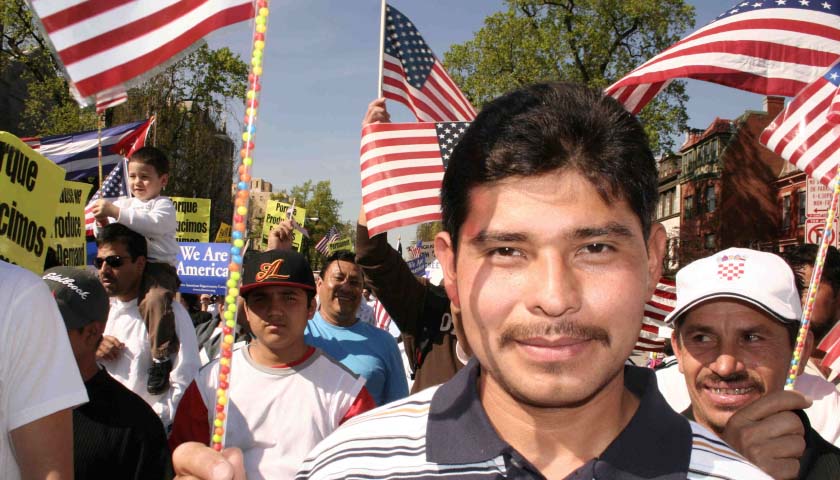by Evan Stambaugh
U.S. Citizenship and Immigration Services (USCIS) has given around $250,000 to two Minnesota organizations that will assist lawful permanent residents (LPRs) in becoming U.S. citizens.
Sens. Amy Klobuchar and Tina Smith announced the funding in a Friday news release. The International Institute of Minnesota and Mid-Minnesota Legal Aid are the two organizations slated to receive the money.
“Immigrants don’t diminish America, they define America. They strengthen America. They are America,” Klobuchar said in a statement on the matter. “With this federal funding, we are ensuring both organizations have the resources to support our state’s immigrant communities, strengthening our state as a whole.”
“As Minnesotans, we have a long history of welcoming immigrants, and helping them become important members of our communities,” said Smith. “These grants will help the International Institute of Minnesota and the Mid-Minnesota Legal [Aid] do important work to assist immigrants as they work toward citizenship.”
According to their respective websites, the International Institute of Minnesota “provides services and resources to empower New Americans (immigrants and refugees) in the pursuit of their goals,” such as English language classes, job training, and citizenship classes, while Mid-Minnesota Legal Aid handles “civil legal matters for Minnesota’s most vulnerable people for no charge.”
U.S. immigration law stipulates that most LPRs can apply for citizenship after five years, though spouses of U.S. citizens only have to wait three years. LPRs can also sponsor “close family members,” e.g., a spouse and unmarried children, to come to the U.S. and become LPRs themselves.
Not everyone who comes to the U.S. can become an LPR, however. In June, the Supreme Court unanimously ruled in the Sanchez v. Mayorkas case that one cannot apply for lawful permanent residency if he or she entered the country illegally.
A man named Jose Santos Sanchez came to the U.S. from El Salvador in the late 1990s and was granted Temporary Protected Status (TPS) because of “unsafe living conditions” in his homeland. He is only allowed to remain in the U.S. until the “unsafe conditions” are alleviated.
Before the ruling, Democratic lawmakers and activists tried to argue that TPS holders were entitled to lawful permanent residency, even if their entry violated U.S. immigration law, because their status meant that the federal government effectively considered them “admitted.” The Supreme Court disagreed with this interpretation, and their ruling prevented illegal alien TPS holders from potentially becoming citizens.
– – –
Evan Stambaugh is a freelance writer who had previously been a sports blogger. He has a bachelor’s degree in theology and is working to obtain his master’s in philosophy. In 2016 he was a volunteer, intern, and field assistant for Donald Trump’s successful presidential campaign. In addition to Alpha News, Evan’s work can be read on Big League Politics.
Photo “Title” by Author. Attribution. Background Photo “Title” by Author. CC BY-Attribution.0.
Photo “Immigrant March” by Elvert Barnes. CC BY 2.0.




